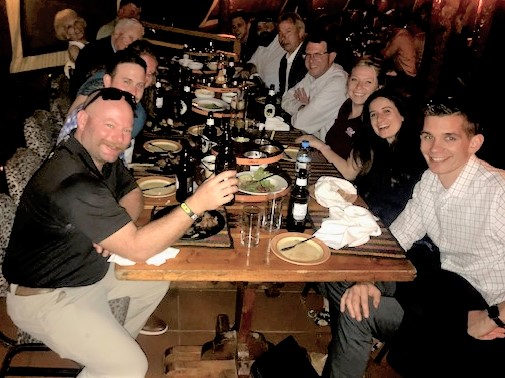Jared Brown, Scott Halpin and Phil Montgomery – Presiding Fellows
Today was our last full day in Kenya, and we started the day off at the International Livestock Research Institute (ILRI). ILRI is one of fifteen research centers around the world that’s mission is to improve food security and to fight poverty sustainably.
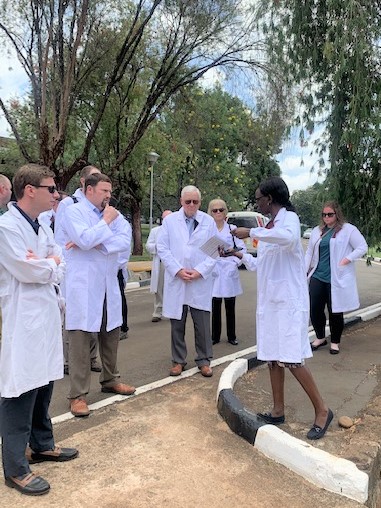
During their presentation, it was said Kenyans typically have enough to eat but lack proper protein in their diets. The average person in East Africa consumes 10kg of meat protein a year compared to 125kg in the US. A large portion of ILRI’s research is studying livestock genetics that helps make small scale farms more productive and sustainable. In addition, some of their research is dedicated to developing forages that are better adapted to Kenya’s climate. Native elephant grass tends to have high growth, but low feed value, so there is a need for higher nutrition forages.
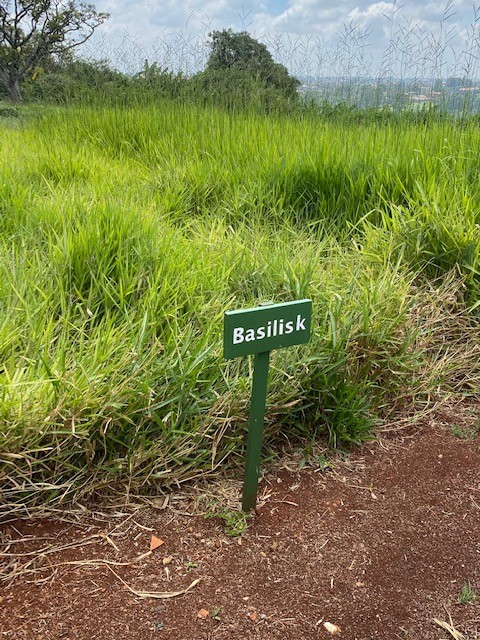
Another aspect of ILRI’s research is the gene bank they are building. They are tracking the genomic data on several species in their facility, and they keep a backup sample for each project cryogenically preserved, so they have the ability to go back years later to do additional research as new technology develops. They also mentioned a project they were working on to partner with game preserves to save samples of wild African animals with the purpose of storing the genetic makeup. This would provide the ability to clone a certain species in the event it should near extinction.
Next up was a meeting with Jehiel Oliver, the CEO of the company Hello Tractor. The company’s focus is sourcing tractors for small Kenyan farmers like an Uber service. Tractor owners employ operators who get calls from farmers for their service to plant, till, harvest the ground when needed. This service is much more efficient than harvesting by hand and helps small farmers increase yields.
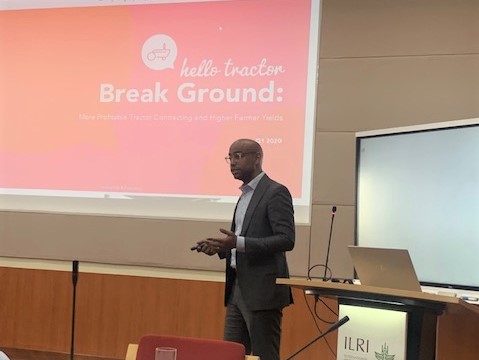
Hello Tractor provides (sells) the tractor owners telematics device, contractor application data, and a booking app to use similar to an Uber platform. Hello Tractor owns the platform, locals own the tractors. The companies key revenue stream is the sale of the platform/app per tractor and some tractor sales and financing costs. The booking agents receive 5% of gross sales of the business they drive up.
The final stop of the day was with Alliance for a Green Revolution in Africa. AGRA was founded by Kofi Anan with the goal of advancing African agriculture production. We were met by Vice President Vanessa Adams and the team who described what they are doing. AGRA is working on everything from policy to planting! Boaz described how the organization works with all African nations to develop farm policy beneficial to agriculture, which is comparable to what we might be doing through our Commodity groups and farm bureaus except on a continental approach.
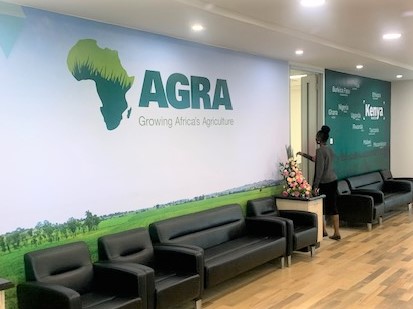
Valentine described his role of developing partnerships and the difficulties of doing that along the chain. Paul described his work in the “field” literally and figuratively! Kenyan farms are mostly 1/2- 3 acres subsistence farms that are oxen plowed and hand planted. The difficulty is changing the Kenyan farmers’ mindset to produce more than their family consumes so they can sell excess & improve their standard of living. AGRA’S model is Inputs—dealers—village-based advisors(VBA’s)—smallholder farms. It is extremely difficult to get bulk products in at the port & get them broken down into small enough packages to then get them distributed out to the smallholder farms that then need to be convinced to change the way they have been farming their whole lives. Remember, these farmers are being asked to use modern genetics & fertility, while they are still hand tilling and planting. It’s a distribution model that includes an extension system component: a daunting task, no doubt. AGRA has several offices throughout the African continent and is doing great work.
Our farewell dinner was at a restaurant called Carnivore. Essentially they serve a ton of meat…pork sausage, pork rib, beef rib, turkey, beef loin, chicken wing, crocodile, rabbit, ostrich meatballs, and ox testicle.
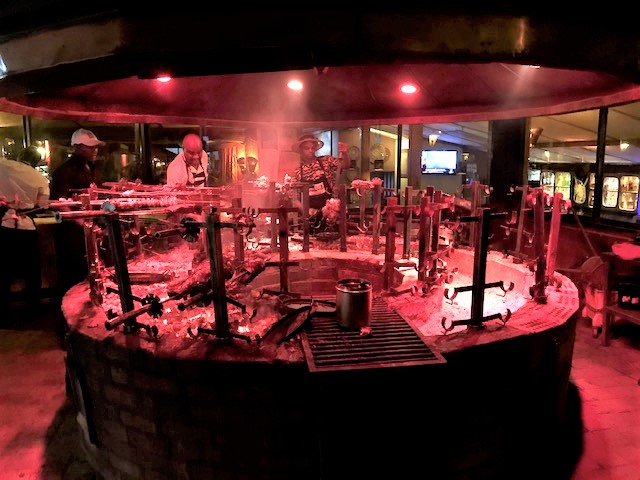
A few of us were brave enough to try a little bit of everything, and the crocodile ended up being the consensus favorite
